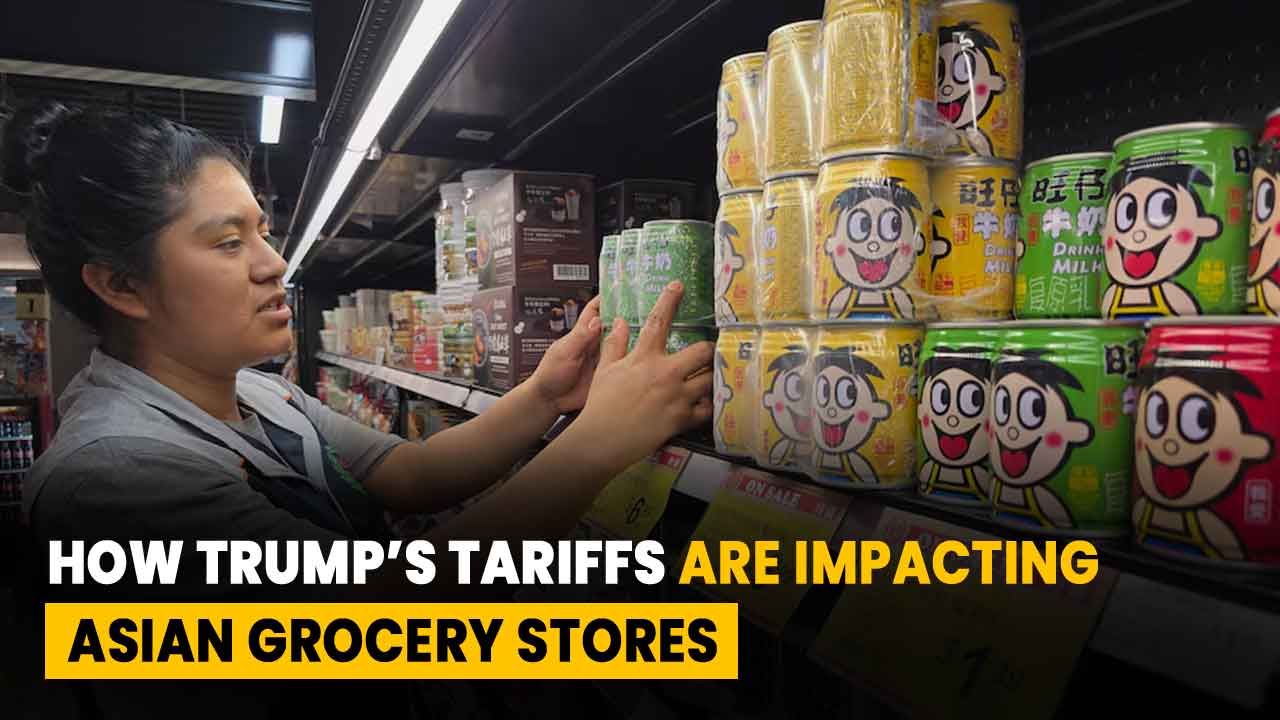Business
How Trump’s Tariffs Are Impacting Asian Grocery Stores

President Trump’s tariffs put America first. But they’re hitting Asian grocery stores directly. While Trump has designed these tariffs to protect American industries, the ripple effects reached deep into immigrant communities. Asian grocery stores suddenly have to face tough new realities. Were these policies helping workers or hurting small businesses? The answer isn’t as simple, but the impact is real. Here’s how these are impacting Asian grocery stores.
Understanding Trump’s Tariffs
Trump’s tariffs are actually taxes that the United States government places on imported goods under President Donald Trump. These taxes are meant to make imported items more expensive so that Americans prefer products made in the U.S. instead. So, the main idea behind these tariffs is to protect American industries and jobs. In fact, President Trump believes that local businesses will have a better chance to grow when consumers find foreign goods far more expensive than local ones.
These tariffs cover different products, e.g., steel and aluminum, solar panels, washing machines, electronics, car parts, clothing, and even some food items. For example, when foreign companies send their products to the U.S., a tariff is added to the price. This way, these products become more expensive for U.S. buyers.
In turn, it would be a great chance for American companies to sell their own products at better prices. However, it also means that companies that rely on foreign products have to pay more for their materials, which will end up with raised prices. That’s why these tariffs are still controversial.
How Trump’s Tariffs Target Trade with Asia?
Asia is marked as the major region affected by these tariffs. This is because Asian countries have especially strong trade ties with the United States. Specifically, Trump’s tariffs are targeting, as he claims, that China has unfair trade practices.
He further states that China used to steal intellectual property and flood the U.S. market with cheap goods. So, he placed high tariffs on Chinese products. In return, China has imposed its own tariffs on American goods, which has led to a long trade standoff between these two countries.
Other Asian nations have also felt the impact of this conflict. For example, Japanese carmakers, which used to export vehicles to the U.S., have faced uncertainties due to these tariffs on autos and auto parts. Vietnam and South Korea, which supply electronics and clothing, have also seen costs go up for American importers. Overall, the goal of these actions is to pressure Asian governments to change their trade policies and give more favorable terms to the United States.
Direct Impact of Trump’s Tariffs on Asian Grocery Stores
Asian grocery stores are an important part of various U.S. communities. The U.S. market sells products that come from China, Japan, Korea, Thailand, Vietnam, and India. This is because many products, e.g., special spices, noodles, sauces, snacks, teas, and rice, are unique to Asian brands that Americans do not find in regular superstores. So, any changes in trade policies and taxes on foreign goods directly affect these stores in the following ways.
Higher Prices on Imported Goods
The overall cost of Asian products goes up than the actual price due to these added tariffs. That means Asian grocery stores have to pay more to stock their shelves. For example, if a popular Japanese noodle brand now has a tariff, the store has to buy it at a higher price. To stay in business, they will raise the price for customers, which will definitely affect the buyers in the long run.
Limited Product Availability
Beyond a certain limit, various grocery items would no longer be available in Asian stores if Trump’s tariffs make them too expensive. As a result, the importers as well as stores are likely to cut back on these items because of low profit margins. This causes shortages in stores and frustrates customers who come for specific sauces, teas, or dried ingredients that are hard to substitute.
Pressure on Small Business Owners
These tariffs are going to affect small businesses more than anything else. This is because when tariffs increase the product cost, small businesses can’t afford to buy and sell at higher prices. Unlike large chain stores, they also can’t afford bulk buying or negotiate cheaper shipping deals. This puts extra pressure on store owners.
Damaged Supplier Relationships
Asian grocery stores in the USA work with trusted Asian suppliers. But if a product suddenly becomes expensive due to new tariffs, they have to find new options. So, it damages the business relationships and reduces the quality of the products they sell.
In short, Trump’s tariffs don’t just affect trade on a global scale, these are also creating daily challenges for small Asian grocery stores across the U.S. As a result, both the store owners and customers are suffering from these tariffs.
How Can Asian Grocery Stores Survive These Tariffs?
Asian grocery stores, especially the small and family-owned ones, face real challenges due to tariffs on imported goods. Rising costs, limited supply, and customer dissatisfaction all threaten their survival. However, below are some practical ways of survival to follow now:
Find Alternative Suppliers or Local Distributors
These Asian stores should look for domestic distributors who already import in bulk and offer better prices. It’s the best way to avoid direct overseas shipments.
Focus on Popular Essentials First
Store owners have to be selective with their inventory. For example, it’s better to prioritize in-demand goods first rather than import a wide range of expensive items.
Offer House Brand Alternatives
Asian grocery stores can also launch their own store-brand products for high-demand items. Similarly, the substitute items can be sourced from non-Asian countries to avoid tariffs.
Partner with Local Farmers and Producers
It’s also possible to consider fresh produce as alternatives to processed items. So, grocery stores can source fruits, vegetables, tofu, snacks, and even baked goods from local Asian communities.
Adjust Pricing Strategies Smartly
Grocery stores should also not raise prices across the board. Instead, they should keep essentials affordable while marking up luxury items slightly. This is a smarter strategy.
In short, adaptability is always a better approach at times of uncertainty. So, Asian grocery stores that stay close to their customers should carefully manage their inventory and explore new sourcing options to avoid the effects of tariffs.




















